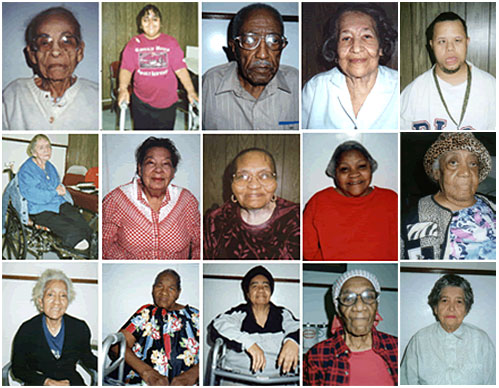Second-Class Medicare for Dually Eligible People Violates Civil Rights, Worsens Disparities, and Harms Millions
A Case Study of Dually Eligible People with Medicare and Medicaid in New Orleans
Sheldon M Hersh, MD
January 2022
info@nacdep.org
EXECUTIVE SUMMARY
“The COVID-19 pandemic is disproportionately affecting dually eligible individuals, racial and ethnic minority groups, and individuals with disabilities.”
— Centers for Medicare & Medicaid Services, February 18, 2021
Government policy worsens racial healthcare disparities for low-income dually eligible people.
The COVID-19 pandemic exposed racial healthcare disparities for dually eligible people with Medicare and Medicaid — “the elderly and disabled poor”. The Congressional Balanced Budget Act of 1997 worsens these disparities.
The Balanced Budget Act decreases access to health care for dually eligible people.
Medicare beneficiaries worked, paid Medicare payroll taxes, and purchased equal Medicare benefits. Yet the Balanced Budget Act allows poor dually eligible Medicare patients to receive less Medicare benefits than wealthier Medicare patients (“Second-Class Medicare”). As a result, four studies show the Balanced Budget Act decreases access to health care for low-income dually eligible Medicare patients.
The Balanced Budget Act created a Second-Class Medicare system for dually eligible people.
The Balanced Budget Act made it illegal for millions of low-income dually eligible people in 42 states to receive more than 78% of their purchased Medicare benefits. The remaining 22% is uncollectible “Medicare bad debt” — a poverty penalty for poor dually eligible people. Wealthier people receive 100% of their Medicare benefit without paying a poverty penalty. The Balanced Budget Act created a two-tiered discriminatory Medicare system for dually eligible people.
This violates the Civil Rights Act of 1964 and the Americans with Disabilities Act.
Dually eligible people are disproportionately elderly people of color and mentally and physically disabled people. Disproportionately decreasing healthcare access for these groups violates the Civil Rights Act of 1964 and the Americans with Disabilities Act and results in racial healthcare disparities tragically exposed by COVID-19.
Flipping a switch can decrease healthcare disparities for low-income dually eligible people.
Penalizing elderly and disabled poor people for being poor is socially unjust and morally wrong. The Centers for Medicare & Medicaid Services pledged to prevent discrimination and promised equal healthcare access for all Medicare patients. It should take only the flip of a legislative switch to reverse healthcare disparities created by the Balanced Budget Act of 1997.
Conclusion.
Racial healthcare disparities will continue as long as poor Medicare patients receive less Medicare benefits than wealthier Medicare patients.
“Turning healthcare disparity into healthcare equality while saving healthcare dollars”
NACDEP, the National Coalition for Dually Eligible People, https://nacdep.org
“Of all the forms of inequality, injustice in health care is the most shocking and inhumane.”
— Martin Luther King, Jr.

Dually Eligible People with Medicare and Medicaid — At the Center of the Next Debate:
Because of their medical frailty, their social and racial demographics, their great expense, and their expanding growth rate, dually eligible people — “the elderly and disabled poor” — will occupy a central position in the upcoming debates over national healthcare financing and disparities in health care in the 21st century.
Sheldon M Hersh, MD
Louisiana Geriatrics Society Annual Meeting
New Orleans, Louisiana, 2003
Excerpts from the Paper
The Balanced Budget Act of 1997 causes disproportionate harm …
“For any government program based solely on adult poverty, decreasing benefits causes disproportionate harm to elderly people of color and mentally and physically disabled people nationwide.”
I had the largest medical practice in Louisiana focused on dually eligible people.
“I practiced internal medicine and geriatrics in New Orleans for 40 years. I had the largest medical practice in Louisiana focused on community-dwelling dually eligible people.”
It takes only the flip of a legislative switch to reverse healthcare disparities …
“Healthcare disparities have many causes. It will take decades to decrease concentrated poverty, eliminate racial and residential segregation, redistribute primary care physicians, and improve health literacy. But it takes only the flip of a legislative switch to reverse healthcare disparities created by the Balanced Budget Act of 1997.”
The Bottom Line:
Racial healthcare disparities will continue as long as poor Medicare patients receive less Medicare benefits than wealthier Medicare patients.
